Welcome User
Relevance
Consult Vascular and Endovascular Surgeons Online (15 doctors)

Dr. Prakash Goura
Vascular and Endovascular Surgeon
8 Years • MBBS , DNB ( GENERAL SURGERY) , DNB ( GENERAL SURGERY) , MCh( VASCULAR & ENDOVASCULAR SURGERY)
Nalgonda
Apollo Reach Hospitals, Miryalaguda, Nalgonda

Dr. R. Jayakrishnan
Vascular Surgeon
20 Years • MBBS, MS, MRCS, MCH
Chennai
Apollo Medical Centre, Annanagar, Chennai
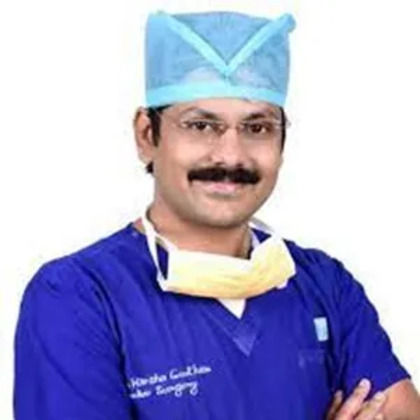
Dr. Harsha Goutham H V
Cardiologist
20 Years • MBBS, MS, MCH
Bengaluru
Apollo Clinic, Electronic City, Bengaluru
(25+ Patients)
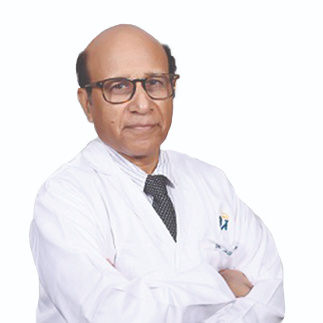
Dr. Jaisom Chopra
Vascular Surgeon
35 Years • MBBS, MS, FRCS
Delhi
Apollo Hospitals Indraprastha, Delhi
(50+ Patients)

Dr Yashpal Singh
Vascular and Endovascular Surgeon
18 Years • MBBS, MS (Gen. Surgery), DNB ( Peripheral Vascular Surgery)
Lucknow
Apollomedics Super Speciality Hospital, Lucknow
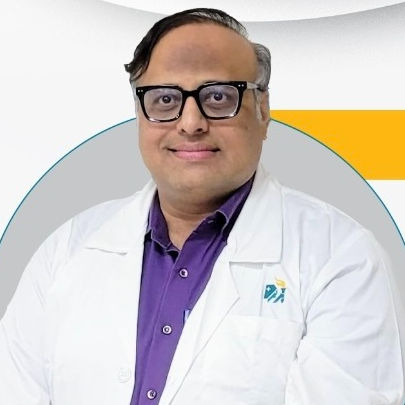
Dr. Lal Daga
Cardiologist
20 Years • MBBS, DNB [MED], DNB [CARDIO], FESC [INT], MNAMS
Ahmedabad
Apollo Hospitals Gandhinagar, Ahmedabad
(25+ Patients)
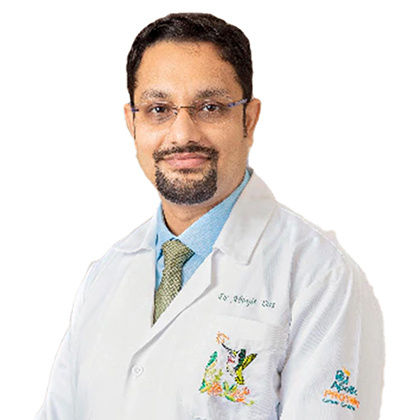
Dr. Abhijit Das
Surgical Oncologist
10 Years • MBBS MS, MCh (Surgical Oncology), Fellowship in Thoracic Oncology (SNUK, Korea), Fellowship in Advance Esophageal Surgery (NCC, Japan)
Chennai
Apollo Proton Cancer Center, Chennai
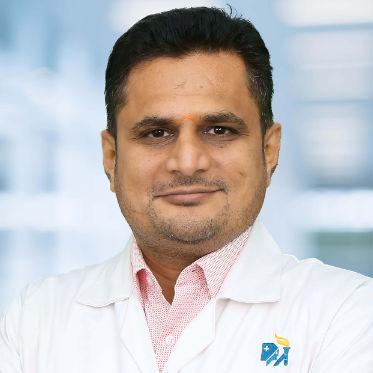
Dr. Prakash Goura
Vascular and Endovascular Surgeon
8 Years • MBBS , DNB ( GENERAL SURGERY) , MRCS, MCh ( VASCULAR & ENDOVASCULAR SURGERY)
Hyderabad
Apollo Hospitals Jubilee Hills, Hyderabad
(50+ Patients)

Dr. Nilaksha Bhattacharjee
Cardiothoracic and Vascular Surgeon
8 Years • MBBS, MS(Surgery), M.CH CTVS (IPGME&R Kolkata)
Guwahati
Apollo Hospitals G S Road, Guwahati

Dr. Piyushkumar Jain
Vascular and Endovascular Surgeon
13 Years • FRCS ( vascular surgery - Eng.), DNB (vascular surgery) , DNB (general surgery), Fellow (RCS - Edin), MBBS
Mumbai
Apollo Hospitals CBD Belapur, Mumbai
(25+ Patients)
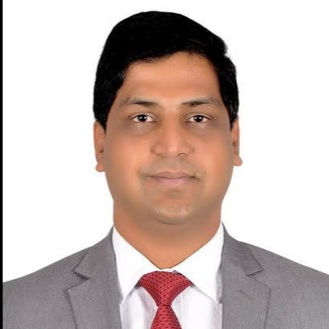
Dr. Shashidhar K P
Vascular and Endovascular Surgeon
15 Years • MBBS, MS, MCh, FIVS
Bengaluru
Apollo Hospitals Sheshadripuram, Bengaluru
(25+ Patients)
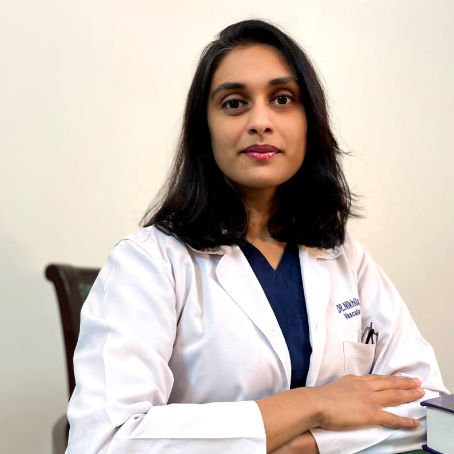
Dr. Nikhila Pinjala
Vascular and Endovascular Surgeon
7 Years • MBBS, M.S(Gen),DNB (Vascular)
Hyderabad
Apollo Hospitals Jubilee Hills, Hyderabad
(25+ Patients)

Dr. Sunder Narasimhan
Vascular and Endovascular Surgeon
21 Years • MBBS,MS,FIVS , FELLOWSHIP in vascular surgery at Rendsburg hospital ,Germany,st Marys hospital london, fellow vascular and endovascular at Royal Adelaide hospital,Royal Darwin Hospital ,Flinders medical centre Adelaide,st george hospital Sydney
Bengaluru
Apollo Hospitals Bannerghatta Road, Bengaluru
(50+ Patients)
Book Consult for Vascular and Endovascular Surgery Online
Booking an appointment with a top vascular surgeon or endovascular surgeon is now easier than ever with Apollo 24|7. Our user-friendly platform allows you to schedule online or in-person consultations at your convenience, connecting you with experienced specialists from trusted hospitals and clinics. With a wide range of appointment slots available, you can receive expert advice and personalised treatment plans for various vascular conditions, all from the comfort of your home or at a nearby Apollo facility. Take the first step towards better vascular health by booking your consultation with a skilled vascular and endovascular surgeon today.
What is Vascular and Endovascular Surgery?
Vascular and endovascular surgery is a medical speciality focusing on the diagnosis, management, and treatment of diseases affecting the vascular system, which includes arteries, veins, and lymphatic vessels. This field utilises both surgical and minimally invasive techniques to address conditions such as aneurysms, blockages, and vascular malformations.
Endovascular surgery, a subset of vascular surgery, involves procedures that are performed inside the blood vessels through small incisions, often using catheters and imaging guidance. The speciality plays a critical role in healthcare by preventing severe complications like strokes, heart attacks, and limb loss, thereby significantly enhancing patient outcomes and quality of life.
Who is a Vascular and Endovascular Surgeon?
A vascular and endovascular surgeon is a highly trained blood vessel doctor who specialises in treating conditions related to the body's network of blood vessels. These surgeons possess extensive training in both general surgery and specialised vascular and endovascular techniques, allowing them to manage a wide range of vascular disorders. Their expertise encompasses everything from minimally invasive procedures performed within the vessels to open surgeries requiring larger incisions.
Conditions commonly managed by these specialists include varicose veins, aneurysms, carotid artery disease, and peripheral artery disease. As vein and artery specialists, they play an indispensable role in preventing life-threatening conditions and enhancing the circulatory health of patients.
What Does a Vascular and Endovascular Surgeon Do?
A vascular and endovascular surgeon is a medical specialist dedicated to the care of the circulatory system, including arteries, veins, and lymphatic vessels. Their work involves diagnosing, treating, and managing conditions that affect these vital parts of the body.
Diagnosis: These specialists use a variety of diagnostic tools, including Doppler ultrasound, CT scans, and angiography, to identify vascular conditions.
Treatment Planning: After diagnosis, they develop personalised treatment plans that may involve medication, lifestyle adjustments, or surgical options depending on the severity and nature of the condition.
Surgical Procedures: They perform both traditional surgeries and minimally invasive endovascular procedures to treat conditions like aneurysms and blocked arteries. These might include inserting stents or repairing damaged vessels.
Follow-Up Care: Post-surgery, vascular surgeons monitor patients' recovery and manage any chronic vascular conditions through regular check-ups and ongoing care.
Emergency Care: They also provide urgent care for sudden vascular emergencies, such as deep vein thrombosis or pulmonary embolism.
What are the Other Sub-specialities of Vascular and Endovascular Surgery?
Vascular and endovascular surgery encompasses a variety of sub-specialities, each addressing specific aspects of vascular health. Here's an overview of some key areas within this speciality:
Peripheral Artery Disease (PAD) Treatment: This involves interventions to restore blood flow to limbs affected by arterial blockages. Treatments can range from lifestyle changes and medications to surgical procedures like angioplasty or bypass surgery.
Aortic Aneurysm Repair (Open and Endovascular): Surgeons treat aneurysms in the aorta using two main approaches: traditional open surgery or a minimally invasive endovascular procedure. The latter involves placing a graft within the aorta to reinforce weak spots.
Carotid Artery Surgery and Stenting: This sub-speciality focuses on preventing strokes by addressing blockages in the carotid artery. Procedures include carotid endarterectomy and carotid artery stenting.
Endovenous Laser Therapy (EVLT) for Varicose Veins: Often performed by varicose vein doctors, EVLT uses laser energy to close off varicose veins, offering a minimally invasive alternative to surgical removal.
Arteriovenous (AV) Fistula Creation for Dialysis: This procedure creates a direct connection between an artery and a vein, typically in the arm, to facilitate blood flow for dialysis.
Thoracic and Abdominal Aortic Aneurysm Repair: Surgeons repair aneurysms located in the chest and abdominal regions using both open surgery and endovascular techniques to prevent life-threatening ruptures.
Deep Vein Thrombosis (DVT) Management: This involves the treatment of blood clots that form in the deep veins of the leg, using medications, compression stockings, or procedures to remove or dissolve clots.
Limb Salvage and Bypass Surgery: Aimed at saving limbs at high risk of amputation due to severe PAD, this surgery uses bypass grafting to reroute blood around blocked arteries.
Each sub-speciality plays a crucial role in managing and treating complex vascular conditions, ensuring patients receive comprehensive care tailored to their specific needs. This breadth of services underscores the critical importance of the vascular surgeon in contemporary healthcare, offering advanced treatments to improve patient outcomes across a range of vascular diseases.
What are the Vascular and Endovascular Surgery Examinations or Tests Performed by the Vascular and Endovascular Surgeon?
Vascular and endovascular surgeons perform a range of diagnostic tests to assess the health of the blood vessels and determine the appropriate treatment plan. Here are some of the most common examinations these specialists conduct:
Doppler Ultrasound: This non-invasive test uses sound waves to evaluate the flow of blood through blood vessels. It helps identify blockages or narrowing of arteries and veins and is crucial in diagnosing conditions like peripheral artery disease (PAD) and venous insufficiency.
Angiography: By injecting a contrast dye into the blood vessels and taking X-rays, angiography provides detailed images of the arteries and veins. This test is essential for pinpointing areas of blockage and for planning interventions like stenting or angioplasty.
Computed Tomography Angiography (CTA): A sophisticated imaging technique that combines CT scanning and contrast dye to produce detailed images of the blood vessels. CTA is particularly useful for detecting aneurysms and other vascular malformations.
Magnetic Resonance Angiography (MRA): This test uses magnetic fields and radio waves to produce detailed images of the blood vessels without the need for radiation. MRA is beneficial for patients who are allergic to iodinated contrast used in traditional angiography.
Ankle-Brachial Index (ABI): A simple, quick test for PAD that compares the blood pressure in the ankle with the blood pressure in the arm to determine how well blood is flowing to the limbs.
Venography: This test involves injecting contrast dye directly into the veins to visualize vein structure and function, helping to identify deep vein thrombosis and other venous disorders.
These examinations are vital tools that help book vascular surgeon and book endovascular surgeon appointments for comprehensive vascular care. They enable specialists to accurately diagnose vascular conditions and effectively plan the best course of treatment for their patients.
What are the Common Conditions & Diseases that Vascular and Endovascular Surgeons Treat?
Vascular and endovascular surgeons address a wide range of conditions affecting the blood vessels. Here are the top 15 conditions they commonly treat, listed in order of prevalence:
Peripheral Artery Disease (PAD): A condition where narrowed blood vessels reduce blood flow to the limbs.
Aortic Aneurysm: A bulge in the wall of the aorta, the main artery carrying blood from the heart, which can rupture if untreated.
Varicose Veins: Enlarged, swollen, and twisting veins, often appearing blue or dark purple.
Carotid Artery Disease: Narrowing of the neck arteries supplying blood to the brain, increasing stroke risk.
Deep Vein Thrombosis (DVT): Formation of a blood clot in a deep vein, predominantly in the legs.
Chronic Venous Insufficiency: Poor blood flow back to the heart from the veins of the legs, causing swelling and skin changes.
Pulmonary Embolism: A blockage in one of the pulmonary arteries in the lungs, usually due to a blood clot that travels from the legs.
Renal Artery Stenosis: Narrowing of the arteries that supply blood to the kidneys.
Raynaud’s Disease: A condition where small blood vessels in the extremities overreact to cold temperatures or stress.
Abdominal Aortic Aneurysm: An enlarged area in the lower part of the aorta, the major blood vessel supplying blood to the body.
Thoracic Aortic Aneurysm: An enlargement of the aorta in the chest area.
Arteriovenous Malformations: Tangles of abnormal blood vessels connecting arteries and veins, which can disrupt blood flow and oxygen circulation.
Limb Ischaemia: Severe obstruction of the arteries which seriously decreases blood flow to the extremities, potentially leading to amputation.
Vascular Trauma: Injury to blood vessels from accidents or violence.
Lymphedema: Swelling due to lymphatic system blockages, often in the arms or legs.
Reasons to See a Vascular and Endovascular Surgeon
Seeking the expertise of a vascular and endovascular surgeon is crucial when experiencing specific symptoms that indicate underlying vascular conditions. Here are key reasons to consult with these specialists:
Persistent Limb Pain or Cramps: Occurs primarily during physical activities and eases with rest, often indicative of peripheral artery disease (PAD).
Changes in Skin Colour or Temperature: Unusual skin colour or colder limbs might suggest circulatory issues that need specialist attention.
Non-healing Wounds: Sores or wounds on the feet or legs that don't heal could be a sign of severe vascular problems.
Swelling in the Legs: Consistent swelling could indicate venous insufficiency or lymphatic issues.
For convenience and immediate access to healthcare advice, consider an online vascular surgeon consultation. If experiencing sudden or severe symptoms, an online endovascular surgeon consultation is advisable to quickly address potential serious vascular emergencies.
What Types of Procedures do Vascular and Endovascular Surgeons Perform?
Vascular and endovascular surgeons perform a variety of procedures tailored to treat diseases of the blood vessels. These procedures are categorised into top therapies and surgeries, each vital for managing specific vascular conditions.
Top Therapies
Angioplasty and Stenting: Widening narrowed or obstructed arteries or veins using a balloon; a stent is often placed to keep the vessel open.
Endovenous Laser Therapy (EVLT): A minimally invasive treatment using lasers to close off varicose veins.
Sclerotherapy: Injection of a solution into spider or varicose veins, causing them to collapse and fade.
Thrombolysis: Breaking down blood clots in blood vessels using medication delivered through a catheter.
Catheter-directed Thrombectomy: Removal of a blood clot from a vein or artery using a catheter.
Atherectomy: Removal of plaque from blocked arteries using a catheter with a sharp blade on its end.
Lymphedema Therapy: Techniques to reduce swelling and manage pain in patients with lymphedema.
Top Surgeries
Carotid Endarterectomy: Surgical removal of plaque from the carotid artery to prevent stroke.
Abdominal Aortic Aneurysm Repair: Surgery to repair an enlarged area in the abdominal aorta.
Bypass Surgery: Creating a new route for blood flow using a graft to bypass blocked arteries.
Varicose Vein Surgery: Removing or tying off bulging veins.
Vascular Access Surgery: Creating a blood vessel access for dialysis treatment.
Amputation: Removal of a limb or part of a limb if severe arterial disease cannot be treated by other means.
Deep Vein Thrombosis Surgery: Procedures to remove or bypass clots in the deep veins.
Understanding the vascular surgeon fee associated with these therapies and surgeries is essential for patients considering their treatment options. Similarly, the endovascular surgeon fee can vary depending on the complexity of the procedure and the technology used.
Why Choose an Apollo 24|7 Vascular and Endovascular?
Apollo 24|7 vascular surgeons and endovascular surgeons are highly skilled and experienced in managing a wide range of vascular conditions. Our surgeons are trained in the latest techniques and use state-of-the-art technology to provide personalised, evidence-based care.
With a focus on patient-centred care, our surgeons work closely with patients to develop comprehensive treatment plans tailored to their unique needs. Apollo 24|7 offers seamless access to consultations, both online and in-clinic, ensuring that patients receive the right care at the right time.
Our multidisciplinary team approach ensures that patients receive well-coordinated, comprehensive care for optimal outcomes.
What to Expect When Visiting a Vascular and Endovascular Surgeon?
Visiting a vascular and endovascular surgeon typically involves a comprehensive approach to diagnosing and treating vascular conditions. Here's what patients can expect during their visit:
Initial Consultation: The first visit will include a detailed medical history and a physical examination focusing on vascular health. This helps the surgeon understand any symptoms like swelling, pain, or changes in skin colour.
Diagnostic Tests: Patients may undergo tests such as ultrasound, CT scans, or angiograms to assess blood flow and identify blockages or other vascular issues.
Discussion of Findings: The surgeon will explain the results of any tests conducted, discussing potential conditions and the severity of any findings.
Treatment Planning: Based on the diagnosis, a treatment plan will be outlined. This might include lifestyle changes, medication, or possibly surgical options. Patients are encouraged to ask questions to fully understand their condition and treatment options.
Follow-Up Care: Plans for follow-up visits will be made to monitor progress and make adjustments to the treatment plan as necessary.
When choosing a specialist, it's beneficial to consider vascular surgeon reviews and endovascular surgeon reviews to ensure quality care. Additionally, searching for a "vascular surgeon near me" or an "endovascular surgeon near me" can help in finding conveniently located specialists.
How Can I Get an Appointment With a Vascular and Endovascular?
Booking an appointment with a vascular and endovascular surgeon at Apollo 24|7 is easy and convenient:
Online Appointment: Visit the Apollo 24|7 website and navigate to the "Book Appointment" section. Select "Vascular and Endovascular Surgery" and choose a surgeon from the list of available specialists. Pick a suitable date and time, and provide the necessary information to confirm your appointment.
Apollo 24|7 App: Download the Apollo 24|7 app on your smartphone. Log in or create an account, then select "Vascular and Endovascular Surgery" from the list of specialities. Choose a surgeon, date, and time, and provide the required details to book your appointment.
Offline Appointment: You can also book an appointment by calling the Apollo 24|7 helpline or visiting your nearest Apollo Hospital. Provide the necessary information, and our staff will assist you in scheduling an appointment with a vascular and endovascular surgeon.
FAQs
What is vascular and endovascular surgery?
Vascular and endovascular surgery are specialised fields focusing on the treatment of diseases affecting the blood vessels, including arteries, veins, and lymphatic vessels. Vascular surgery involves open operations, while endovascular surgery uses minimally invasive techniques performed within the vessels.
Is vascular and endovascular surgery serious?
Yes, vascular and endovascular surgeries are serious as they address critical conditions that can lead to life-threatening complications like strokes and heart attacks if untreated. These surgeries can significantly improve quality of life and are crucial for managing severe vascular diseases.
Who needs vascular and endovascular surgery?
Individuals with diseases of the blood vessels, such as atherosclerosis, aneurysms, varicose veins, and blockages, may require vascular and endovascular surgery. Those experiencing symptoms like pain, swelling, or ulcers due to poor blood flow often benefit from these surgical interventions.
Can you walk after vascular and endovascular surgery?
Post-surgery mobility depends on the type of procedure and the individual's overall health. Many patients can walk shortly after minimally invasive endovascular procedures. However, recovery might take longer after major open vascular surgeries, requiring more time before normal walking is possible.
What is the success rate of vascular and endovascular surgery?
The success rate of vascular and endovascular surgeries generally is high, especially for procedures like angioplasty, stenting, and aneurysm repair. Success rates vary depending on the specific condition treated, the severity of the disease, and the patient's overall health.
How long does vascular and endovascular surgery take?
The duration of vascular and endovascular surgeries can vary significantly, from 30 minutes for straightforward procedures like some angioplasties to several hours for complex operations such as bypass surgery or aortic aneurysm repair.
What is the most common complication of vascular and endovascular surgery?
The most common complication of vascular and endovascular surgery is restenosis, where the blood vessels re-narrow after being treated. Other potential complications include infection, bleeding, and damage to surrounding tissues.
Who performs vascular and endovascular surgery?
Vascular and endovascular surgeries are performed by specially trained surgeons known as vascular surgeons. These medical professionals are experts in diseases of the vascular system and the surgical and minimally invasive treatments required to address these conditions.
What is the recovery time for vascular and endovascular surgery?
Recovery times can vary widely based on the type of surgery performed and the patient's condition. Minimally invasive endovascular procedures typically have shorter recovery times, often a few days to a week, whereas major open surgeries might require several weeks or longer.
Is vascular and endovascular surgery painful?
Patients may experience some pain and discomfort following vascular and endovascular surgery, but this is generally manageable with medications. Minimally invasive procedures usually result in less pain compared to open surgeries.